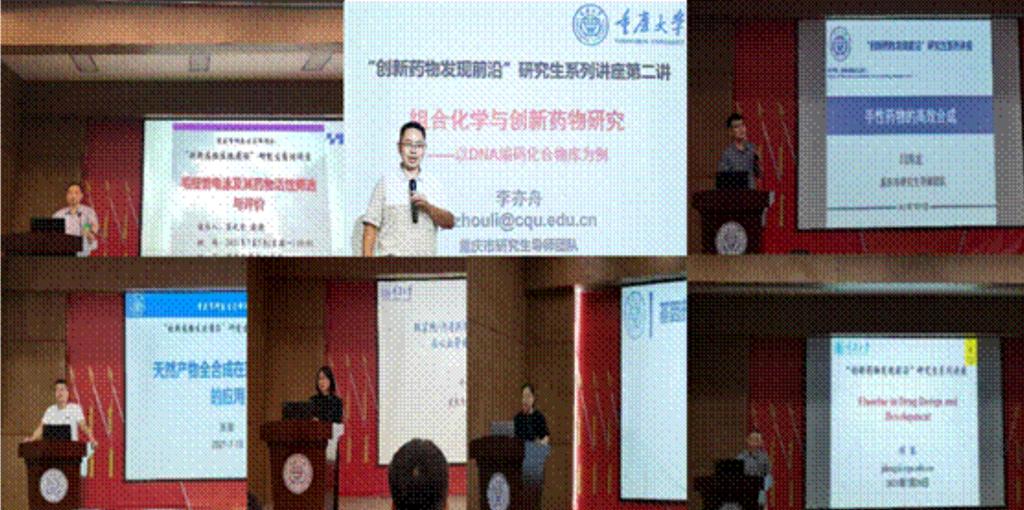In July 2021, the Chongqing Postgraduate Mentor Team, led by Prof. Zhining Xia, started a series of lectures on "Frontiers of Innovative Drug Discovery", in which seven professors of the Chongqing Postgraduate Mentor Team brought research updates to the students.
On July 5th, Prof. Zhining Xia gave a fascinating lecture focusing on the topic of "Capillary electrophoresis and its drug activity screening and evaluation". In the lecture, Prof. Xia introduced the structure and principle of capillary electrophoresis, and explained its advantages and limitations.
On the same day, Prof. Yizhou Li gave a presentation on "Combinatorial chemistry and innovative drug research – introduction of DNA-encoded library (DEL)", highlighting the history, development, and workflow of DEL.
On July 7th, Prof. Hailong Yan shared his report on "Efficient Synthesis of Chiral Drugs" with his group's research in recent years, where his group used the reaction intermediates of vinylidene o-quinone methide to carry out a diverse synthesis.
On July 13th, Prof. Min zhang gave a lecture entitled "Application of natural product total synthesis in new drug discovery". He emphasized the importance of daily experiment work and step-by-step reaction.
On July 16th, Prof. Xiaoyong Tong gave a lecture on "The role of sarcoplasmic/endoplasmic reticulum calcium ATPase in cardiovascular diseases". Prof. Tong introduced her group's pharmacological work related to cardiovascular diseases based on the effect of mutation of SERCA2 protein C674 on downstream signaling pathways in SKI knockout mice.
On July 19th, Prof. Xuli Feng gave a lecture on "Transport and Application of Genetic Drugs", where she explained the development of cancer treatment modalities and therapeutic prospects.
On July 20th, Prof. Deng Jun shared his lecture on "Application of fluorine atoms in drug molecular design", where fluorine-containing drugs were introduced.
This series of lectures on "Frontiers of Innovative Drug Discovery" is an important part of the training process of graduate students in SPS. the lectures will continue to develop students' vision, improve their theoretical cognitive ability and scientific research level, and lay a solid foundation for training national biomedical talents.
